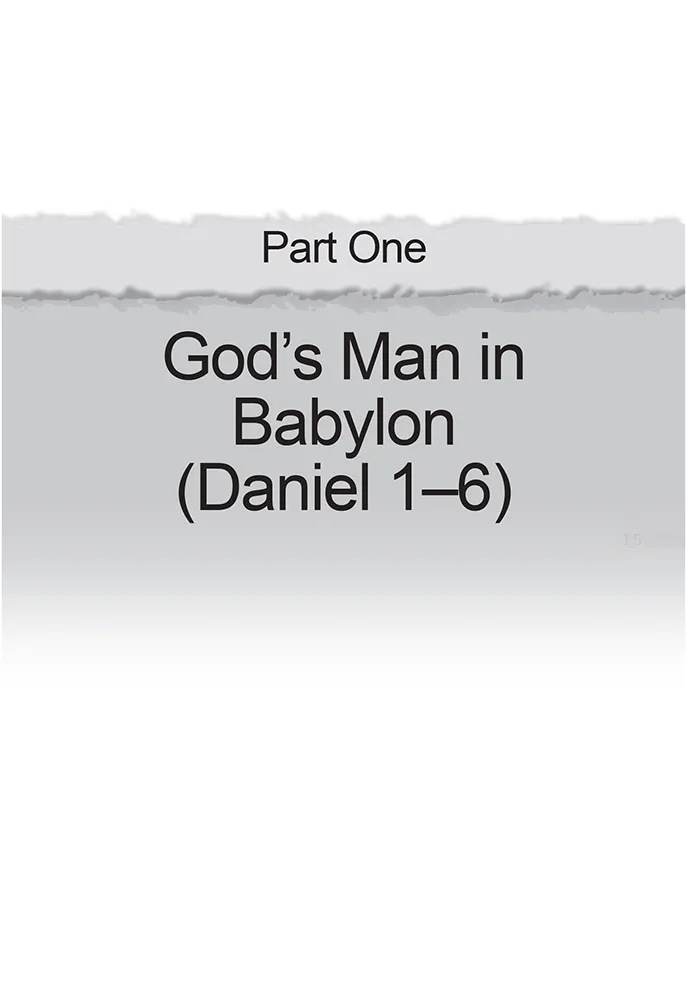![]()
![]()
“In the third year of the reign of Jehoiakim king of Judah, Nebuchadnezzar king of Babylon came to Jerusalem and besieged it.”
(Daniel 1:1)
At the start of the twenty-first century, every CEO had a 2020 Vision for their business. It was meant to be a play on words, a jokey claim that the CEO possessed a perfect vision of the future which ought to motivate employees to turn that vision into reality. But when 2020 arrived, the joke turned sour. Nobody had predicted that COVID-19 would devastate their business, eclipse their vision statements and silence their boasting. Their 2020 Visions became sobering reminders of what the Bible says in James 4:13–14: “Now listen, you who say, ‘Today or tomorrow we will go to this or that city, spend a year there, carry on business and make money.’ Why, you do not even know what will happen tomorrow.”
We don’t know what Daniel would have written on his 605 BC Vision, but what we do know is that 605 BC proved even more devastating to his world than 2020 proved to ours. For Daniel, the events of 605 BC must have felt like it was the end of the world.
The year 605 BC was the year that saw the rise of King Nebuchadnezzar of Babylon. First, the crown prince shifted the balance of power in the ancient world by crushing the Egyptian and Assyrian armies at the Battle of Carchemish. Then, just as the world became Babylon’s for the taking, news arrived that King Nabopolassar had died. Nebuchadnezzar succeeded his father to become the greatest and longest-reigning king of Babylon. Like an unstoppable coronavirus, he spread his empire into every nation.
This was also the year that the nation of Judah definitively rejected the Word of God. We can read about what happened in Jeremiah 36, where King Jehoiakim is granted a private reading of a first edition of the book of Jeremiah. Instead of repenting, he slices the book into pieces, throws the pieces on the fire and orders the arrest of the prophet. This violent rejection of God’s Word marked a major turning point in Jewish history.
As a result, 605 BC became the year in which the city of Jerusalem fell to its enemies for the first time. A century earlier, the Lord had rescued the capital city of Judah from an Assyrian army due to the repentance of King Hezekiah and the prayers of the prophet Isaiah. King Jehoiakim’s refusal to repent and to partner with the prophet Jeremiah meant that the city fell to the Babylonians after the Battle of Carchemish. Foreign soldiers plundered its royal palaces, its treasuries and its holy Temple. They also plundered its citizens by taking 7,000 young Jewish men into exile in Babylon – not just as trophies of war to sell at the slave markets, but as gifted students young enough to be brainwashed into serving as loyal officials for the growing Babylonian Empire.
The opening verses of the book of Daniel inform us therefore that 605 BC was the year in which the gods of Babylon seemed to triumph over the God of Israel. Since the name Nebuchadnezzar means May-The-God-Nebo-Help-My-Crown-Prince, it looked as though his father’s prayer had been answered when he entered the Temple of the Lord and took back some of its sacred objects as plunder to the temple of his own idol in Babylon.
Daniel was among the 7,000 Jewish young men who were carted back to Babylon with the treasures from God’s Temple, so 605 BC must have felt like the end of the world for him personally. It dashed any dream that the teenager might have had of working with the prophet Jeremiah to bring spiritual revival to the Jewish nation. It ruined any hope that he might have had of his aristocratic family securing him a post at the royal palace, from which he might become a godly influence on the kings of Judah. Instead, he was forced to serve the monstrous empire that had just torn him away from his parents and from the Promised Land. It took several months to travel from Jerusalem to Babylon, so it must have felt like the end of the world to Daniel in every way.
Have you got that? Then you are ready for the message of the book of Daniel, because the Lord does more than dash the hopes and dreams of CEOs for their businesses. He also dashes the hopes and dreams of his followers for how they can serve him. The book of Daniel demonstrates that God is not looking for generals who can assist him with clever strategies for the advance of his Kingdom. He is looking for foot soldiers who trust that he alone knows the best strategy and who say a simple “yes” to his commands. The year 605 BC felt like the end of the world for Daniel and his contemporaries, but these opening verses hint at two ways in which it would spell revival for the Jewish nation.
First, these opening verses tell us that the events of 605 BC granted Jewish believers access to the throne room of Babylon. The breaching of the walls of Jerusalem did not mark the end of Jewish history. It marked the moment when its faith went global. The arrival of 7,000 Jews in Babylon marked one of the greatest missionary moments in the Old Testament. It was the beginning of the Jewish conquest of Babylon.
Second, these opening verses tell us that the events of 605 BC sowed the seeds for the return of the Jewish exiles to the Promised Land. The sacred articles that are plundered from the Lord’s Temple by King Nebuchadnezzar become very important later. We are informed in Daniel 5 that the Lord regarded the mistreatment of these vessels as mistreatment of himself, so when the king of Babylon used them to raise a toast to his own idols, it directly caused the fall of Babylon to the Persian army in 539 BC.
From that perspective, 605 BC was not the end of the world for the Jewish nation. Like the famous Trojan Horse in Greek mythology, it marked the moment when God’s people breached the walls of Babylon. We must never forget that God marches to victory on the death-and-resurrection highway. Even when he looks defeated, he knows precisely what he is doing.
So if your own world feels like it is in tatters right now, be encouraged. If your own plans for serving God have ended in failure, then do not despair. Whenever you find yourself in a hopeless place, remember the message of Daniel: It is God who put you here.


